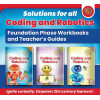Behind the Pitch: Why Parents Aren't Buying the BELA Bill
In 2017, the Department of Basic Education (DBE) found itself facing an "avalanche" of public comments on the controversial BELA Bill. As Director General Mr. Mweli revealed this overwhelming response to the parliamentary committee, Mr. I Ollis (DA) was quick to point out the root cause: the bill's blatant interference with parents' democratic rights.
Despite the flood of feedback, the DBE showed no intention of amending the draft bill. Instead, Mr. Mweli suggested public hearings to "educate" parents - an attempt not only to inform parents but persuade them to agree with the bill. This approach, Ollis argued, was not only highly offensive as it implied the public was stupid, but also disregarded the essential role of public input in shaping legislation.
As the DBE scrambled to sell the BELA Bill to skeptical parents during the 2023 and 2024 parliamentary public hearings they deployed a series of tactics aimed at swaying parental opinion. First they brought in advocates to instil fear, warning that non-compliant parents could face severe penalties. When that fear-mongering tactic failed to resonate, the DBE switched gears, introducing Mr. Ndlebe to paint a rosy picture of how easy compliance would be, all under the guise of noble intentions. Yet, despite these calculated efforts, parents remained unconvinced, and the bill failed to gain the widespread acceptance the DBE had hoped for.
On August 5th 2024, Learnfree reported on X (formerly Twitter) that Mr. Ndlebe attributed the bill's lack of traction to public misunderstanding and the spread of misinformation. But this raises a provocative question: Who is really misunderstanding the BELA Bill — Mr. Ndlebe or the concerned parents?
Misleading Constitutional Claims
Mr. Ndlebe's defense of the bill started with the claim that home learners are constitutionally required to register. However, Section 29 of the Constitution specifies that independent institutions providing education must register, not individual learners. If home learners are forced to register, does this mean that children are being treated as institutions? This leap in logic only deepens the public's scepticism and raises doubts about the bill's intent.
Curriculum Flexibility: Fact or Fiction?
Mr. Ndlebe also assured parents that they could use any curriculum of their choice, but the truth lies in the words of Clause 35 of the BELA Bill. This clause demands that the home education program “predominantly covers the acquisition of content and skills at least comparable to the relevant national curriculum determined by the Minister.” Essentially, this criminalizes the use of educational programs that don't align with the national curriculum. The bill even empowers the Minister to dictate sensitive topics such as sex education and gender ideology, fuelling division in an already polarized society. Why, then, are independent schools only required to meet standards, while home learners are boxed into specified content and skills?
The Role of Independent Assessors: A Restricted Choice
Mr. Ndlebe further claimed that parents could freely use independent assessors to evaluate their children's progress. Yet, Clause 35 of the BELA Bill contradicts this by limiting parents' options, requiring them to arrange for assessments by a state registered "competent assessor" against a standard set by the National Curriculum Statement. This effectively bans the use of potentially more appropriate or affordable independent assessment methods. By imposing these constraints, the bill erodes parental autonomy and forces them into compliance with rigid standards.
Common Sense vs. The DBE's Sales Pitch
The objections raised by home educators aren't based on misunderstanding or misinformation — they stem from a clear, common-sense reading of the BELA Bill. When push comes to shove, and disputes end up in court, it's this straightforward interpretation of the law that will prevail, not the slick promises made by Mr. Ndlebe. When their children's education and well-being are at stake, responsible parents would do well to trust their instincts and common sense, rather than falling for the DBE's sales tactics.
In the end, the DBE's failure to sell the BELA Bill isn't about a lack of public understanding — it's about a public that understands all too well what's at risk and isn't willing to be swayed by fear or flattery. The DBE needs to address these genuine concerns head-on, rather than dismissing them as mere misunderstandings.

Comments
Events
Legal & Research
Homeschooling and the law
Home schooling was recognized in 1996 in Section 51 of the SA Schools
+ ViewCentres
Homeschool ABC
Support
Curriculums
Frequently Asked Questions
-
Do home learners get homework?
In general all their schoolwork is homework and they do not get to do extra work in the afternoons. A tutor might give some extra work to complete...
-
What is home education or homeschooling?
Home education is the oldest form of education. The school system as we know it is actually fairly new. It is done under the guidance and the...
-
Do I need to be a qualified teacher?
No. Research has found no correlation between the qualification of the parent and the academic performance of the child. Research shows that...
-
Is homeschooling legal in South Africa?
Yes. Since 1994, the right for parents to home educate their children was legalised in South Africa through the adoption of the new constitution. In...
Has no content to show!

































